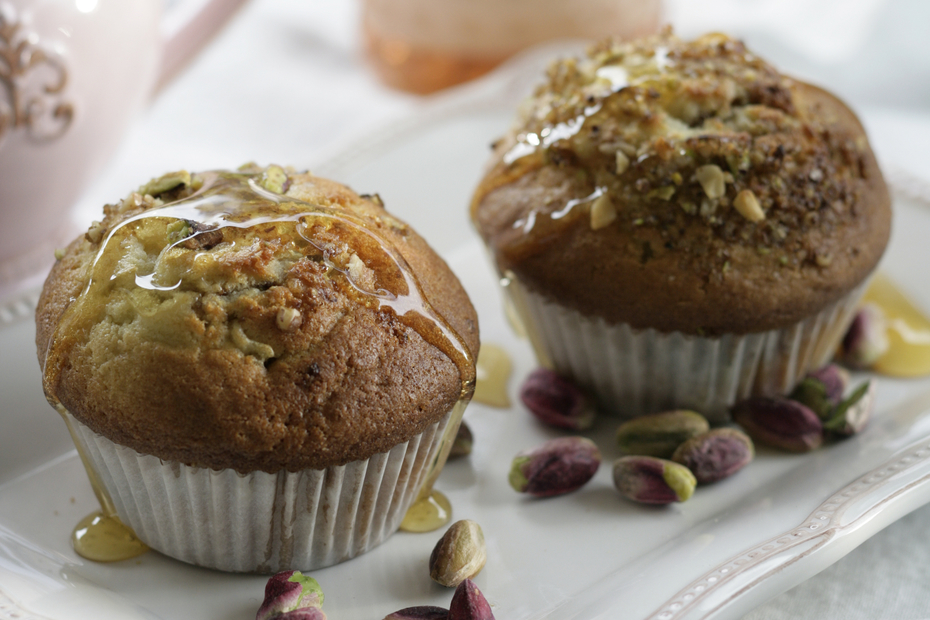“Mom, can you make a lemon cake?” this is a refrain I hear pretty often in our house, as my son, 14 and hungry just about every 20 minutes, has had a sweet tooth since he first tasted ice cream, still in the stroller, around the age of 1. I never aimed to curb it. Instead, I taught my kids to eat well and to savor dessert judiciously. We buy virtually no processed foods, save for the occasional can of tomatoes and cereal, an unfortunate habit it’s been impossible to wean the kids off. Sweets in our house are almost always homemade, and for the most part as healthy as sweets can be. That lemon cake my son hankers after is made with whole wheat flour, olive oil, Greek yogurt and honey.
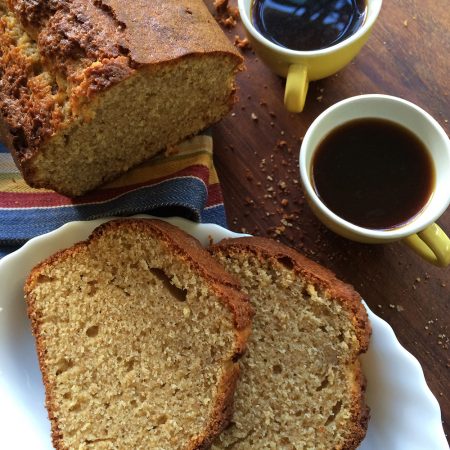
Here’s a healthy Greek dessert with lemon, olive oil, whole wheat flour, and Greek yogurt.
I follow the Greek traditions when baking. Most Greek desserts are short on cream and butter and long on age-old ingredients that have always been part of the diet, in both sweet and savory foods. For one, that means using olive oil instead of butter in many instances, replacing sugar, at least in part, with natural sweeteners such as grape molasses and honey, and making spoon sweets, essentially preserves of seasonal fruits, certain vegetables, and a several immature nuts. When you use olive oil in baking the flavor changes, but not unpleasantly, at least not to me. Replacing butter with olive oil allows one to use 25% less fat, so the caloric intake on dessert is automatically reduced. And, of course, it’s a good fat. Olive oil also helps keep cakes moist.
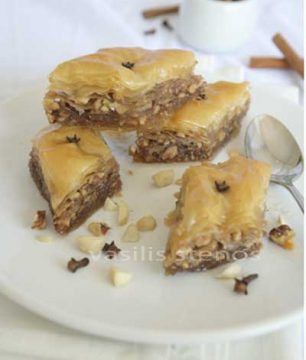
Baklava
Using natural liquid sweeteners like honey or grape molasses – petimezi – is a little more challenging, since sugar also adds volume when whipped, and structure when baked. The texture of cakes will be moister but also a bit more dense. The rule of thumb when substituting a liquid sweetener for sugar is to use less and then to reduce the amount of other liquid in the recipe: For every cup of sugar, use ¾ cup of honey and for every cup of honey, use ¼ cup less overall liquid. So, for example, if the original recipe calls for a cup of sugar and a cup of milk, water or juice, use ¾ cup honey or petimezi and ¾ cup of milk, water, or juice. I hope that makes sense!
One of the things I really love about the roster of traditional sweets in the Greek kitchen is not only the innate healthfulness of many recipes (not all!), but also their earthy quality. Greek desserts call for a lot of nuts, especially walnuts, almonds and/or pistachios. They also call for dried fruits, mainly raisins. These are nutritious ingredients in their own right.
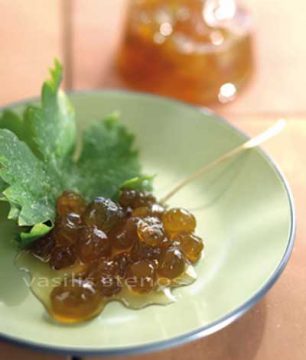
Grape Spoon Sweet, called Stafyli Glyko
There are deeper reasons, perhaps developed empirically over the years, why traditional Greek sweets are so rich in nuts. Nuts are protein- and fat-based foods. Sweets, of course, contain carbohydrates. The protein in nuts counteracts the effects of the carbs, which in turn reduces the burden on our pancreas to produce high quantities of insulin. Nuts, in other words, keep the balance of glucose levels in the blood more stable. Walnuts, a Greek staple, are especially nutritious, providing some rate anti-oxidant and anti-inflammatory phytonutrients that help reduce the risk of prostate and breast cancers. They also contain a lot of vitamin E, which is great for heart health. The skin is actually the healthiest part of the walnut, where almost 90% of its health-giving phenols are found. And, yes, you guessed it, one of the greatest of all Greek spoon sweets is made from immature walnuts, picked in June, when the skin is green and soft and before the nut has a chance to develop.
So, next time that sweet tooth comes a calling, think Greek, think nuts, honey, yogurt, raisins, and an ancient spirit of goodness that seems to pervade almost every aspect of the Greek table, even dessert!
FIVE HEALTHY DESSERT CHOICES THAT ARE GREEK
If you’re on the lookout for some of the most nutritious Greek desserts and sweets, here’s a quick list:
Spoon Sweets (preserves of seasonal fruits and certain young vegetables and immature nuts). Read the label carefully. The best and healthiest are preserved either in a honey syrup or in petimezi, grape molasses.

This halva is made with semolina and flavored with saffron and honey syrup.
Various Greek cakes, such as fanouropita, which is vegan; bobota (a corn cake made with dried fruits and yogurt); and petimezopita, another rich, dense cake made with olive oil, spices, nuts and dried fruits and sweetened with grape molasses. Halva, one of the best Greek desserts, a kind of pudding cake made with coarse semolina, olive oil, spices, nuts, raisins, and syrup.
Certain cookies, namely melomakarona, which are made with olive oil.
Baklava, the classic Greek layered phyllo dessert, stuffed with nuts and dampened with syrup. Again, make sure to ask whether the syrup is sugar-based or honey-based. You might also like to try a playful version of this classic, in the form of baklava muffins.
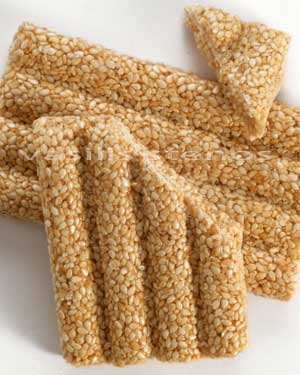
Pasteli, with sesame seeds and honey, is the ancient Greek energy bar.
Pasteli, one of the world’s most nutritious sweet snacks, made with calcium-rich sesame seeds and honey. There are more, but this is a great start. Make a cup of health-giving Greek coffee to wash down the confection, and you might just eradicate guilt from the dessert menu.
